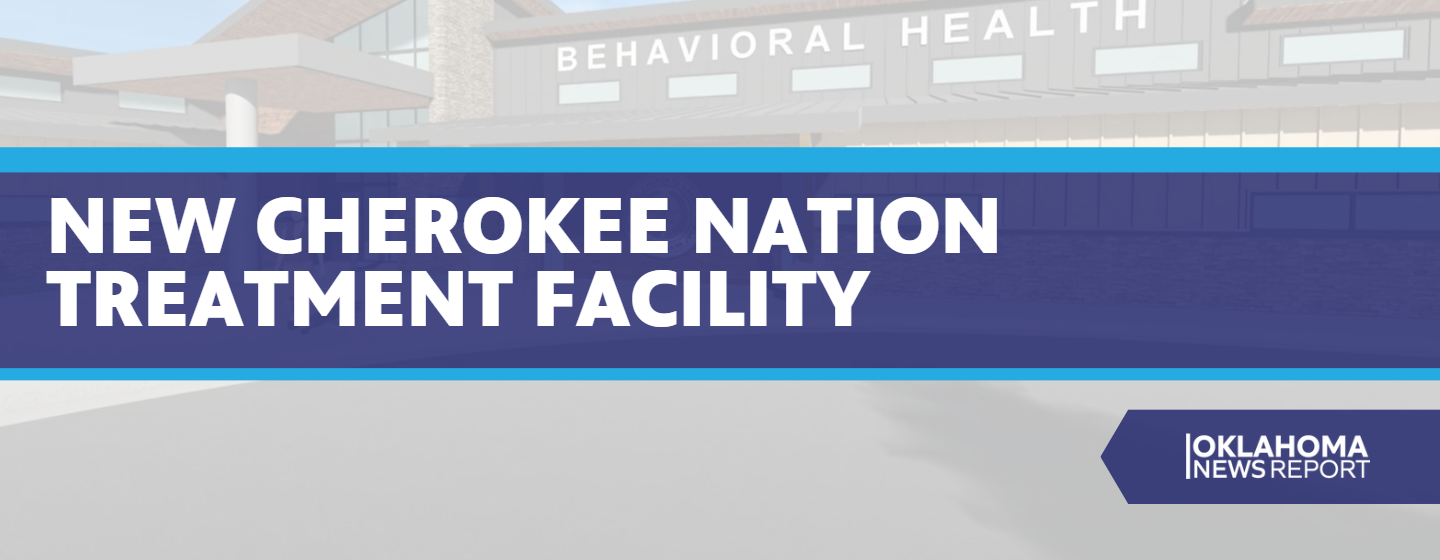The Cherokee Nation recently unveiled plans for a new $18 million drug treatment center to be built in Tahlequah, OK.
Reporter Steve Shaw explains what prompted this latest investment from Principal Chief Chuck Hoskin Jr. Between 2016 and 2020, more than 3000 Oklahomans died from opioid over.
Manufacturers and distributors so far have paid hundreds of millions of dollars in settlements. The Cherokee Nation is using some of that money to do this. 26-year-old Summer Locust works in government relations at Cherokee Nation headquarters in Tahlequah. She says she kicked a painful addiction habit for four years.
“I was going through a rough spot in my life, and I was going through a rough breakup, and I used that to cope. When I was on drugs, when I was high, I, I didn't feel anything. I was completely numb. There was no happiness, no sadness, no anger. I was more like a walking zombie,” Locust stated about the struggles with her addiction. “You build up a tolerance and one thing led to another. I can tell you right now, before I started drugs, I had never tried anything in my life. A month and a half later after I tried drugs, I tried seven or eight different ones.” says Locust.
Last month the Cherokee Nation announced plans to spend 18 million on a 17,000 square foot treatment facility.
The center will be in the Park Hill area of Tahlequah, a half mile south of Cherokee Nation headquarters. It's part of a larger, at least 100 million commitment that Cherokee Nation Deputy Chief Bryan Warner says will address an opiate scourge that has haunted his people for more than two decades.
“This is something that either directly or indirectly affects all of us,” Warner says.
With more than 450,000 citizens, Cherokee Nation is the largest Native American tribe in America. There are 260,000 citizens in northeast Oklahoma alone. Deputy Chief Warner says reports that one third of all opioids shipped into the sooner state in recent years went to Cherokee Nation citizens are accurate.
“It is a true statement, and why it happened, man, I would love to get down to the heart. You know, at some point, I hate to cast any blame on anyone, but there must be blame somewhere. And perhaps if you look back at the history between the United States and the Cherokee people or other tribes, maybe it was we felt like, hey, it's an easier target. They have federal funds that support, they have Indian Health Service dollars that help support the healthcare of these individuals. Maybe we were an easier target. Easy mark. You hate to say that, but I mean, there has to be some nugget of truth there and I think the bigger question is how do we get through this?” Warner says.
Warner says planning for the facility is ongoing and will likely last two years. It will include not just treatment, but residential aftercare and a plan for success as well.
“You know what we see? We see a lot of communities that perhaps as Chief Hoskin very well puts it that the rest of the world has forgotten about.
But the Cherokee nation has not forgotten about it because our citizens live there. Our citizens founded those areas, and things like opioids and other drugs and other afflictions of this world have infiltrated these communities and have started to deteriorate these communities. Well, we see an opportunity today with these settlement dollars. To give that lift and be that rise in tide that raises all ships. But we have to do it in a very instrumental strategic way. There's $5 million set aside through these opioid funds that go into that hundred-million-dollar plan. That will provide scholarships for individuals that we want to pipeline through that industry, whether it's peer support specialists or whether it's other licensed practitioners, we need everybody,” Warner says.
Juli Skinner is Director of Behavioral Health for the Cherokee Nation. She works in the nation's harm reduction clinic a few miles from Cherokee headquarters. One of the things they do is distribute clean needles because she says many diseases transmit through dirty ones.
“It's helping create that bridge for those folks who aren't ready. So, when they are ready, they know where to go. I'm very proud actually. I've been with the Nation working within the tribal nation here at Tri Nation since 2000. And I've worked in Indian Child Welfare for 13 of those years. I'm working with families who have been placed in the foster care system due to disruption of care due to drug use .” Skinner says.
She says a new facility will help. “What we're seeing in our medication clinics is a high rate of overdose. We're seeing those coming into our ER. They're overdosing in the parking lot because Fentanyl is really everywhere and they're lacing it with every type of drug out there,” says Skinner.
But help for those who want it, she says, will always be out there.
“No matter where you're at in addiction, you're gonna have a place to go,” Skinner says.
“There's new innovative treatments and some of these things like harm reduction and medically assisted treatments, people just don't know about those things in this part of the world. We've read about it, we've seen about it in urban areas, but those types of treatments have been working well, but we have to educate. If we do not get buy-in, this is a problem for everybody,” Warner says.
“I think about the support that I had from my family. Especially my mom. I know I hurt her the most, but the support I had from my mom, not everyone has that, and that's what the Cherokee Nation's trying to do here. They're trying to help those individuals, you know, get back on their feet,” says Locust.





